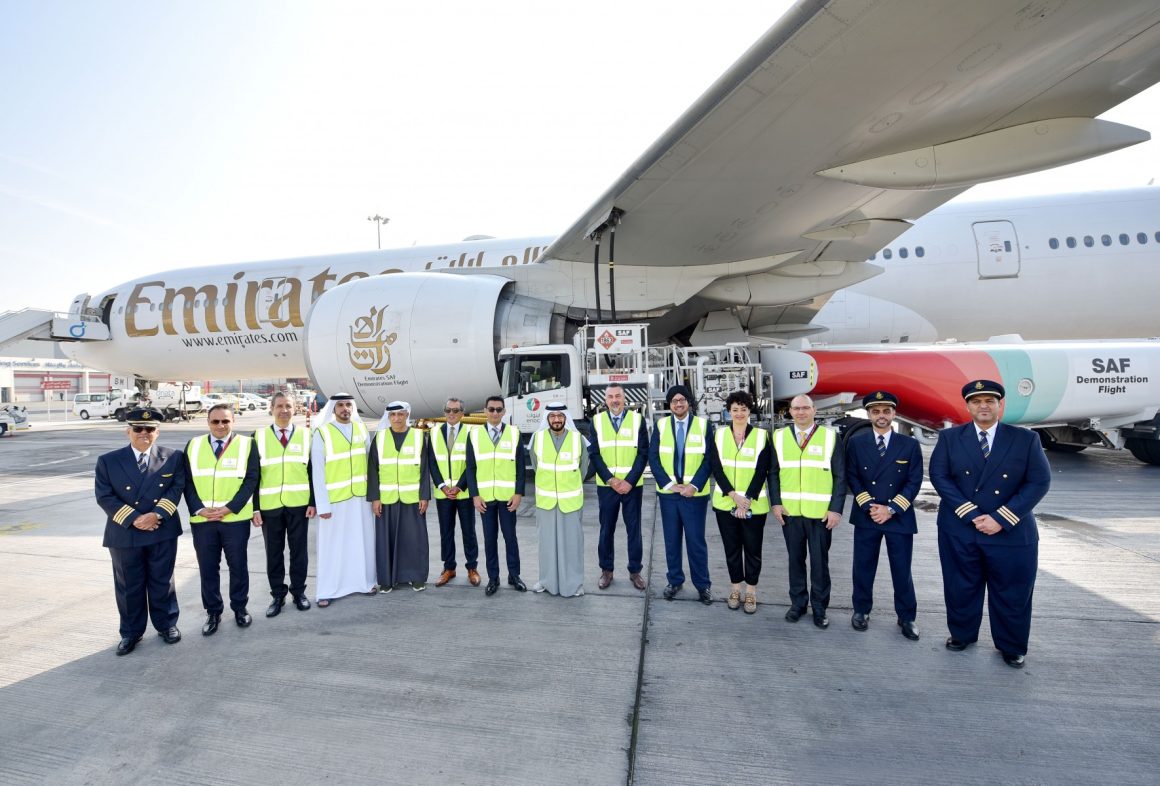environmental sustainability. This partnership is a testament to our shared vision of a more sustainable future for aviation, and we look forward to continuing our collaboration with Emirates to drive the adoption of SAF and other clean technologies in the industry.”
Emirates and Neste have announced an extension of their partnership, which will see the supply of over 3 million gallons of blended Neste MY Sustainable Aviation Fuel in 2024 and 2025. The sustainable aviation fuel will be blended with conventional jet fuel and supplied to Emirates’ flights departing from Amsterdam Schiphol and Singapore Changi airports. This partnership represents the largest volume of SAF to be uplifted of any airline based in the Middle East and Africa to date. The blended SAF will be comprised of over one million gallons of neat SAF, with a blended ratio of over 30% neat SAF combined with conventional Jet A-1 fuel.
Emirates’ commitment to environmental sustainability is further demonstrated by its plans to uplift SAF for the first time from its Dubai hub before the end of this year. SAF has been shown to reduce carbon emissions of air travel by up to 80% over the fuel’s life cycle when compared to using conventional jet fuel.
Sir Tim Clark, President Emirates Airline, stated that this announcement is a milestone for Emirates and represents the acceleration of SAF procurement for its operations. He also highlighted the airline’s commitment to reducing carbon emissions through various initiatives, including operating fuel-efficient aircraft, fleet renewal from 2024, and driving operational fuel efficiency.
Alexander Kueper, Vice President EMEA from the Renewable Aviation business unit at Neste, expressed his pride in expanding the existing cooperation with Emirates into 2024 and supporting their commitment to environmental sustainability. He also emphasized the importance of sustainable aviation fuel as a readily available solution for reducing greenhouse gas emissions from air travel and the need for scaling up SAF and other emerging clean propulsion technologies in the industry.
Earlier this year, Emirates, in collaboration with Neste and other industry stakeholders, successfully completed the inaugural demonstration flight in the region powered entirely by Sustainable Aviation Fuel (SAF). This milestone was achieved by utilizing a Boeing 777-300ER aircraft with one engine operating solely on 100% SAF. The airline, in conjunction with its industry partners, has made significant progress in conducting technical analysis and meeting certification requirements to support the standardization and future approval of 100% SAF utilization in aviation.
Emirates first introduced SAF blended with conventional jet fuel on a flight from Chicago in 2017. Since then, the airline has continued to incorporate SAF into its operations, including flights from Stockholm, Paris, Lyon, and Oslo.
Emirates has taken a leading role in various industry and UAE government working groups, actively engaging in discussions with stakeholders to promote the production and supply of SAF on a larger scale. The airline, in collaboration with the UAE General Civil Aviation Authority (GCAA), has played an instrumental role in the development of the UAE’s ambitious power-to-liquid (PtL) fuels roadmap. This roadmap, driven by the UAE Ministry of Energy and Infrastructure and the World Economic Forum, aims to establish a sustainable framework for the production and utilization of SAF. Emirates has also contributed to the UAE’s National Sustainable Aviation Fuel Roadmap, launched in January 2023 by the Ministry of Energy and Infrastructure and GCAA.
It is important to note that the environmental benefits of SAF are most accurately assessed when it is used in its pure form, without blending with conventional jet fuel. This assessment is conducted using established life cycle assessment (LCA) methodologies, such as the CORSIA methodology.

